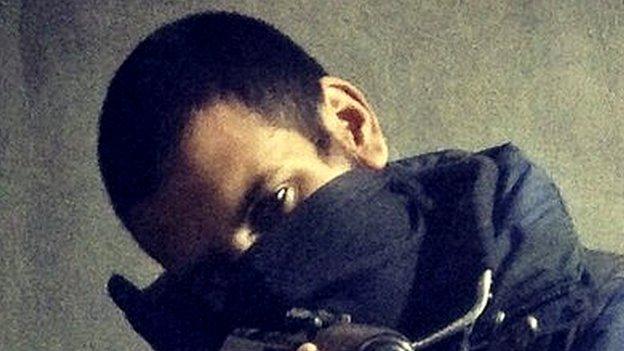Islamic State conflict: UK 'would repeat Syria drone strike'
- Published
- comments
Defence Secretary Michael Fallon said there had been "no other way" to deal with the Britons accused of plotting terror attacks
The UK would not hesitate to launch more secret drone strikes in Syria to thwart terror plots, Defence Secretary Michael Fallon has said.
He said the RAF strike that killed two British Islamic State jihadists was a "perfectly legal act of self defence".
There are "other terrorists" involved in "other plots that may come to fruition" in weeks or months, he said.
Meanwhile, the father of two more Britons thought to be in Syria said he believed they were now on a "hit list".
Ahmed Muthana, father of Nasser, 20, and Aseel Muthana, 17, from Cardiff, said he thought the pair could be killed in a similar drone strike because the UK government is "targeting everyone now".
Earlier, Mr Fallon would not be drawn on whether the UK had a "hit list".
'Barbaric attacks'
But he told the BBC: "There are a large number of individuals - not all British - out there in Syria... who are actively involved in planning armed attacks here in Britain."
BBC security correspondent Frank Gardner said if such a list existed, it "would be something drawn up digitally", and based on intercepting online communications, or human informants.
A debate over the UK's use of drones started after MPs were told on Monday that Cardiff-born Reyaad Khan, 21, had been killed in a precision strike in Raqqa by a remotely piloted aircraft.
Ruhul Amin, 26, from Aberdeen, was also killed in the attack on 21 August.
Stephen Marvin said his friend Ruhul Amin had "no fear of death at all"
The RAF strike was the first targeted UK drone attack on a British citizen, and was based on information gleaned from the UK's secret intelligence services, the BBC understands.
Mr Fallon said there had been "no other way" of stopping Khan, whom Prime Minister David Cameron accused of having planned "barbaric" attacks on "high-profile public commemorations" in Britain.
"We wouldn't hesitate to take similar action again," Mr Fallon told BBC Radio 4's Today programme.

Online exchange
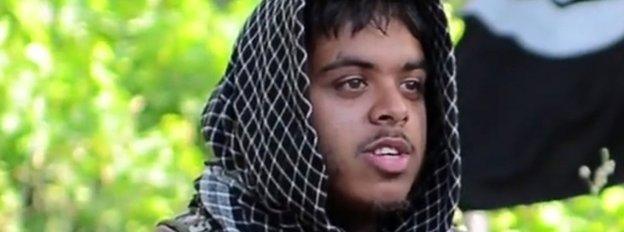
By Steve Swann, BBC News
In June 2014, Reyaad Khan spoke to me in an online exchange on the day the "There is no life without Jihad" video was published, telling me: "The whole world can feel us marching."
He said he had not left his family in Cardiff to pursue fame.
In earlier messages, he had been keen to explore the role of foreign policy in radicalising British Muslims, complaining that "the Syrian issue is being used and brandished about without explanation by policy makers as justification for further policing laws against Muslims in the UK".
But increasingly the messages revealed how an angry, articulate young man, initially scathing about the view that Britons fighting in Syria posed a threat to the UK, had become much more dangerous.
He boasted that IS was "under your noses" and that the "whole world guna (sic) be lit up soon".

MPs rejected military action in Syria two years ago, but Mr Cameron said the attorney general had agreed there was a "clear legal basis" for the RAF strike.
He said it had been approved at a meeting of "the most senior members" of the National Security Council and authorised by Mr Fallon.
The prime minister's official spokesman said the decision had been taken "some months ago".
Labour questions
The government has justified its decision to launch the strike under Article 51 of the United Nations charter, which says member states have an "inherent right of self-defence" if an armed attack is occurring or is believed to be imminent.
But acting Labour leader Harriet Harman and the SNP's Westminster leader Angus Robertson have called for the Intelligence and Security Committee (ISC) to investigate. The ISC can summon intelligence chiefs to give evidence, but a new committee has not yet been appointed following the general election.
Labour leadership candidate Andy Burnham said it was "unacceptable" for ministers to say that they will not publish any further information.
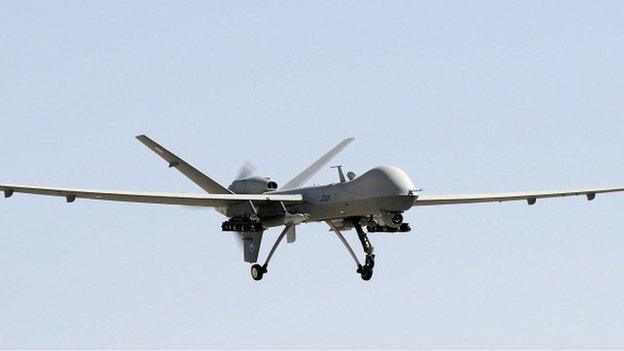
The RAF strike was the first targeted UK drone attack on a British citizen
In other developments:
Family friends of Reyaad Khan, along with Muslim leaders in Cardiff, have called for proof of his involvement in a planned attack on the UK
One friend of Khan's, known as Sajid, told the BBC that "no Muslim condones being part of IS"
Ibrahim Alwawi, an imam in Aberdeen, said the death of Ruhul Amin was a sad end because he could have been a successful British Muslim rather than a threat to the country
On Monday, SNP Westminster leader Angus Robertson complained of not having been briefed about the British drone deaths, ahead of David Cameron announcing the news in the Commons. However, it has since emerged that SNP leader Nicola Sturgeon was told
Another British fighter, Junaid Hussain, was killed by a US drone strike on 24 August and the BBC has seen evidence that suggests he was involved in an active plot against targets in the UK.
Hussain is said to have been involved in encrypted phone conversations with another British man - who cannot be named for legal reasons - who was allegedly at an advanced stage of planning an attack in the UK.
It is understood the plot was disrupted before Hussain was killed.
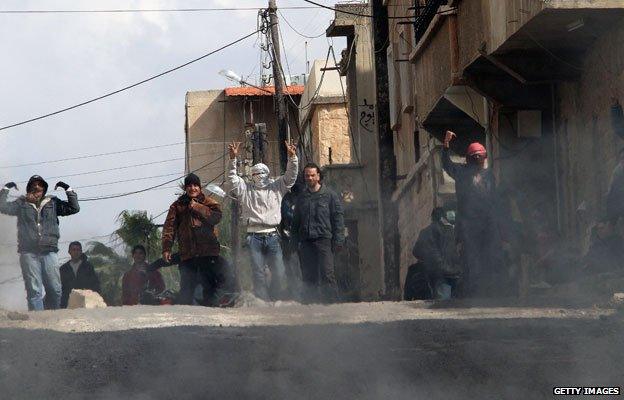
War in Syria has been ongoing for four years
In 2013, MPs rejected UK military action against President Bashar Assad's regime in Syria, but last September approved British participation in air strikes against IS targets in Iraq only.
But officials said the UK would "act immediately and explain to Parliament afterwards" if there was "a critical British national interest at stake".
Mr Fallon said a fresh Commons vote would be needed for pre-planned military action against IS in Syria.
Over the last four years, more than 200,000 Syrians have lost their lives as what began as anti-government protests escalated into full-scale civil war.
- Published12 October 2017
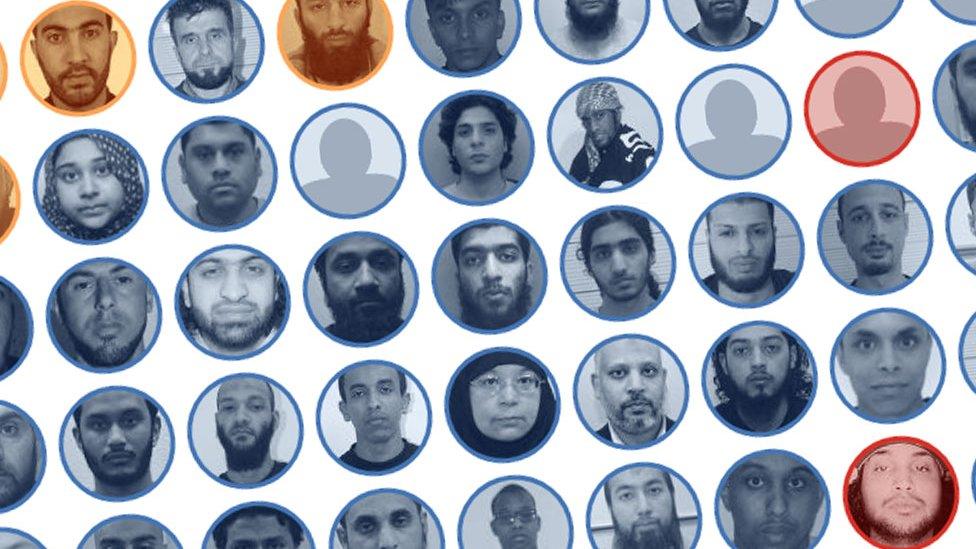
- Published8 September 2015
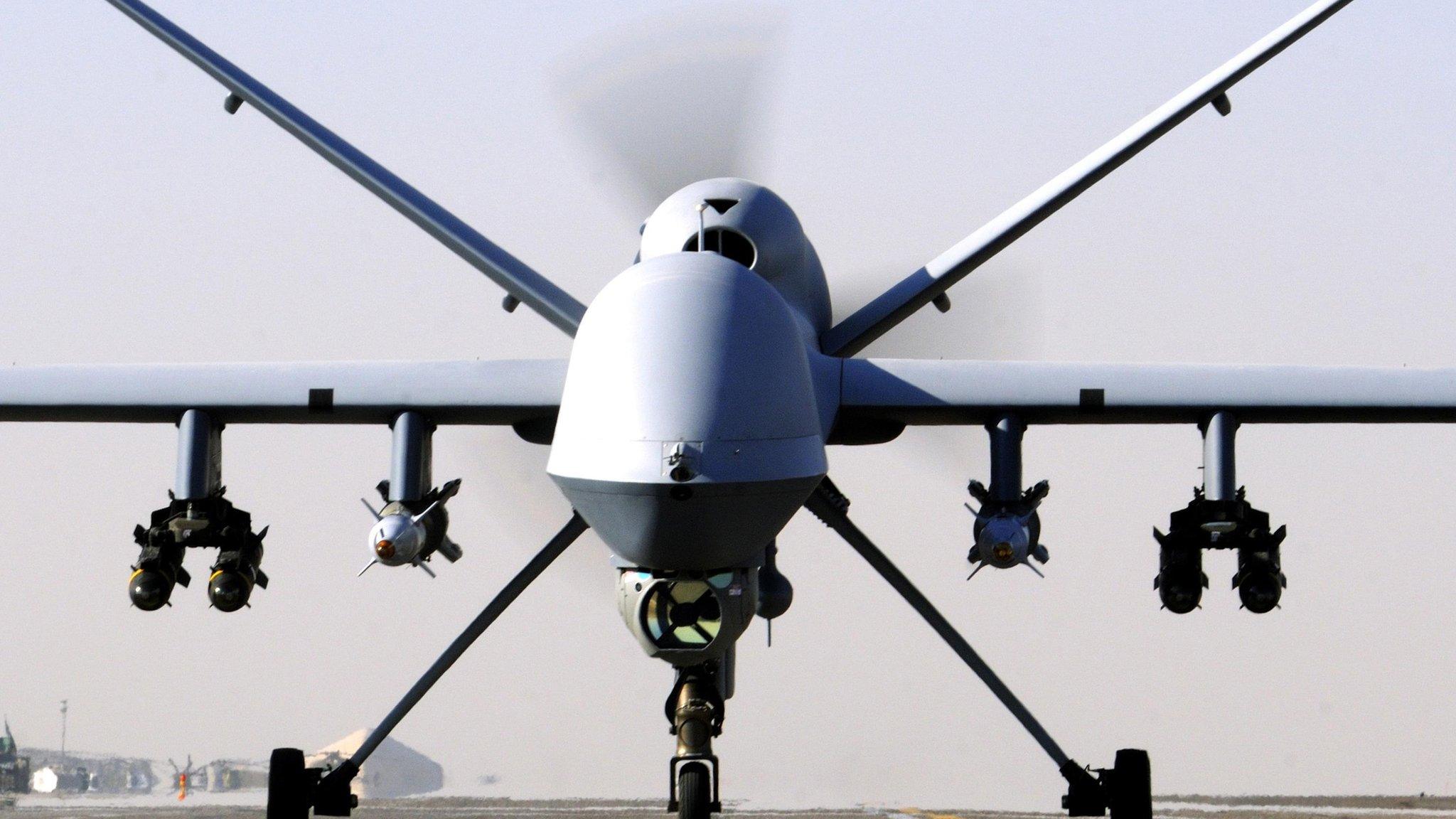
- Published8 September 2015
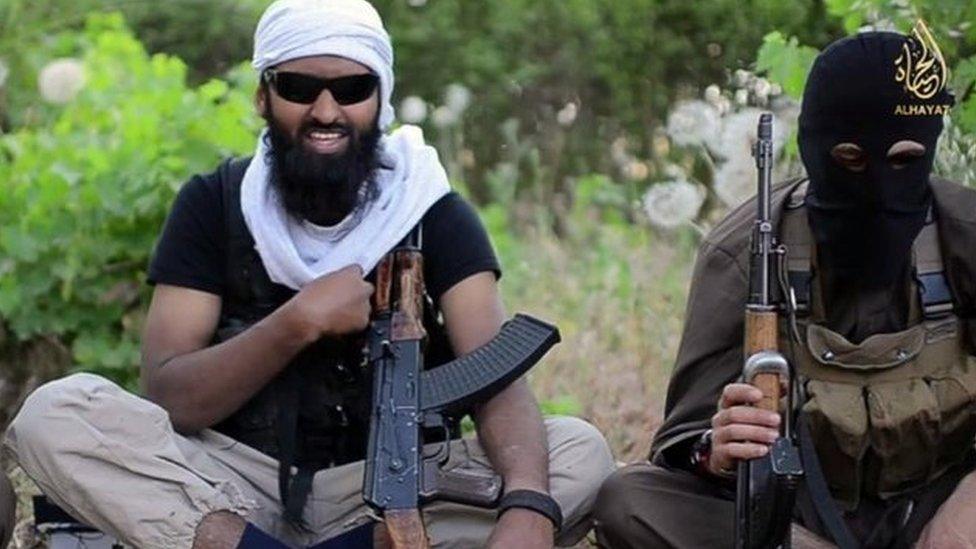
- Published8 September 2015
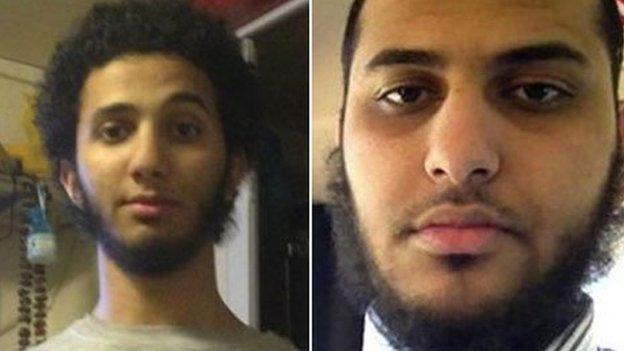
- Published7 September 2015
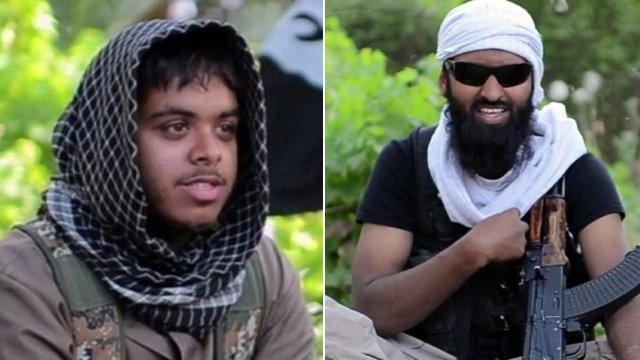
- Published2 September 2015
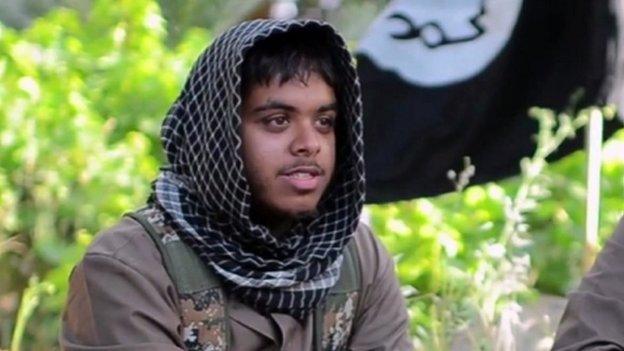
- Published27 August 2015
